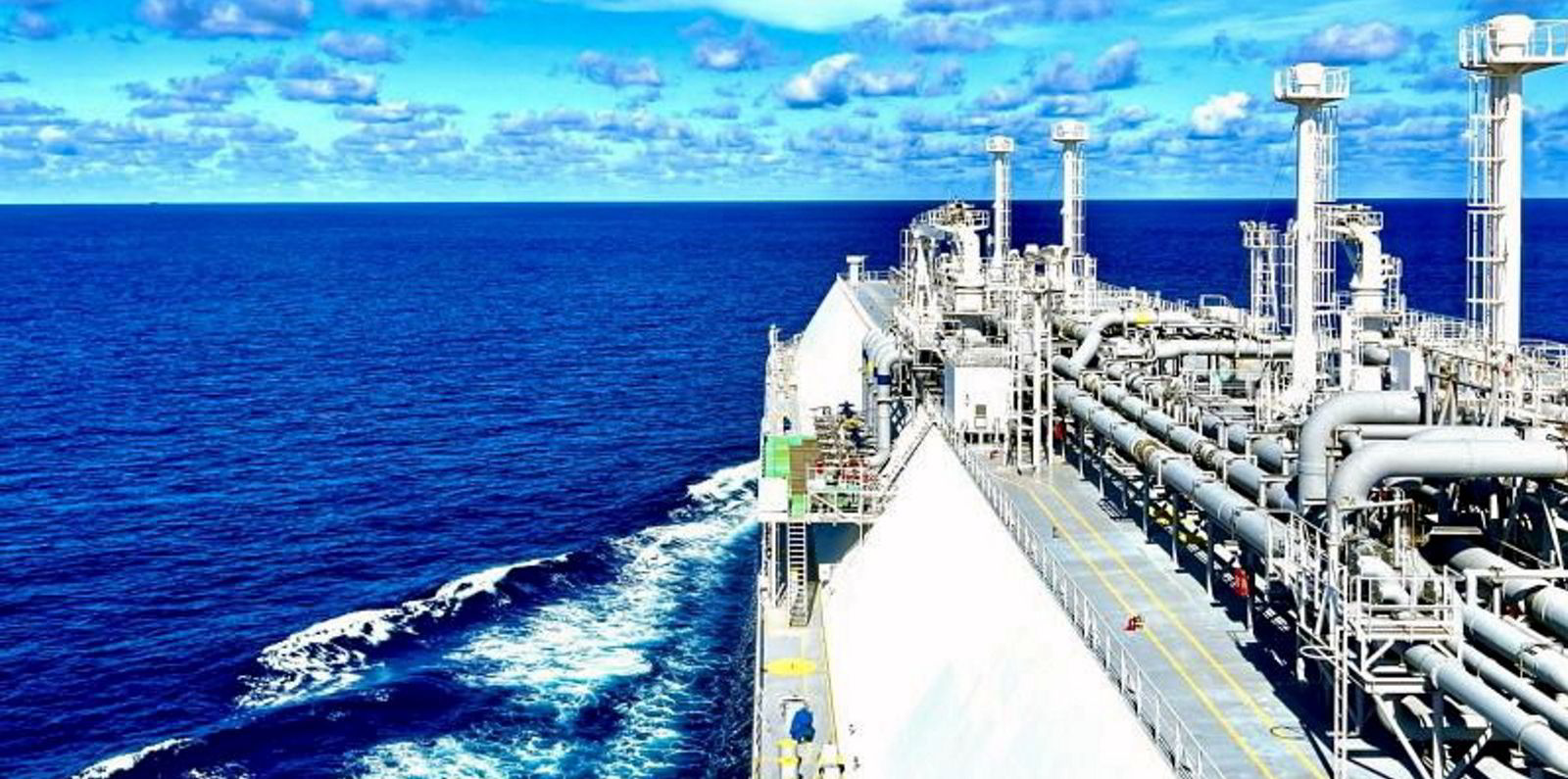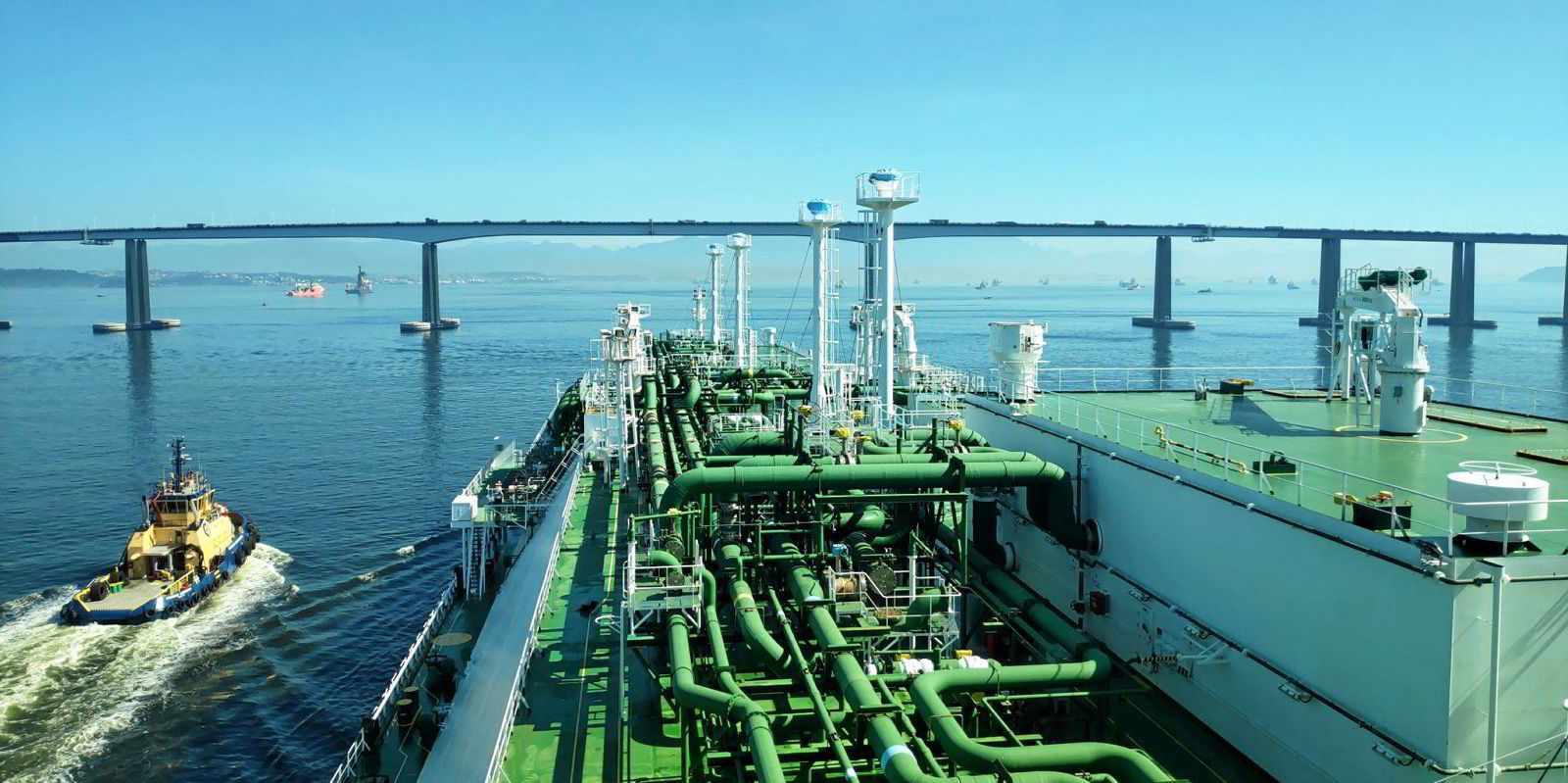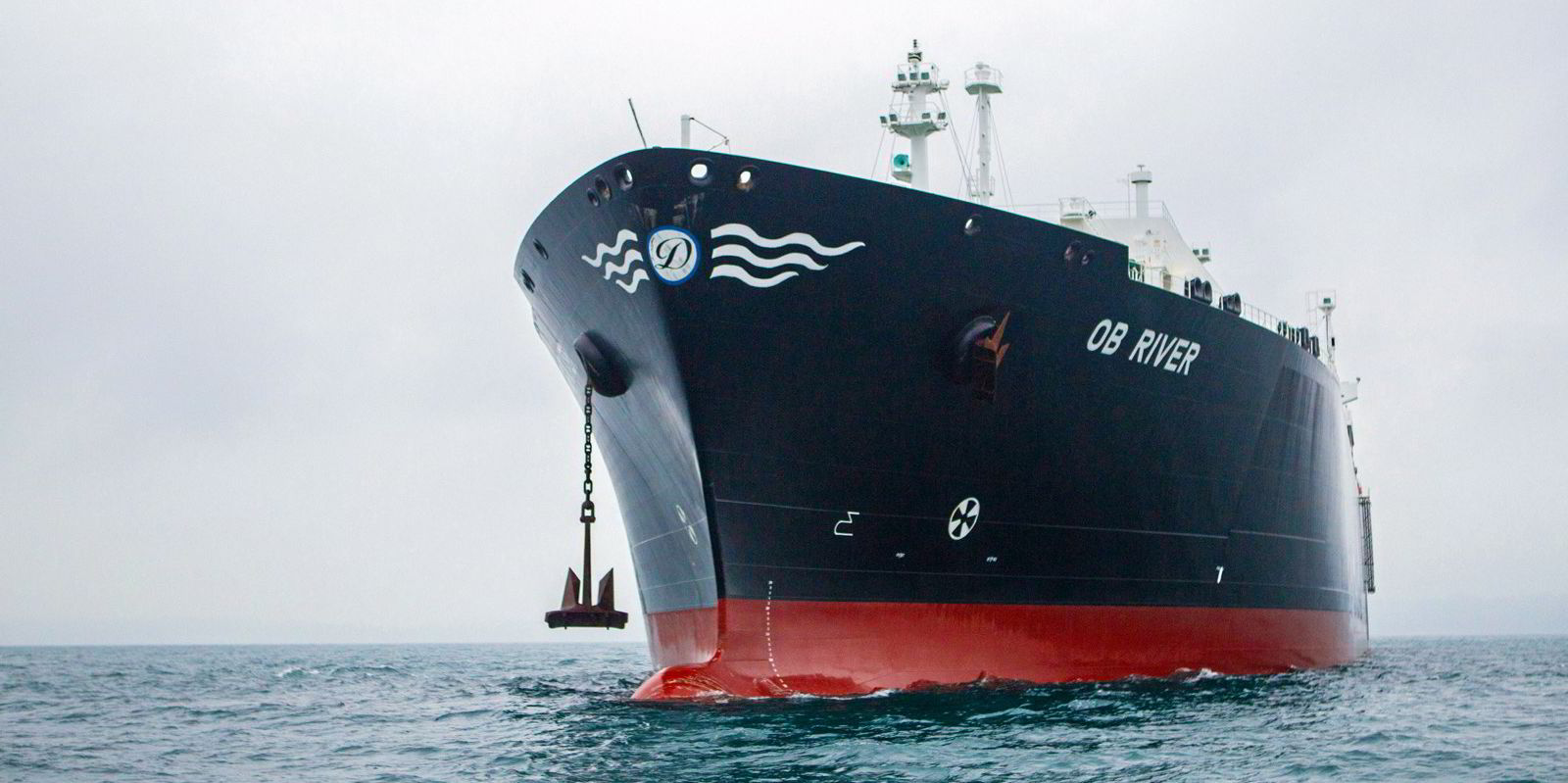Red-hot record LNG carrier charter rates beckon this winter in a market where gas prices are set to remain high amid exceptionally tight tonnage conditions.
Brokers said the headline rate for LNG carriers could top $500,000 per day, with one adding that he would not be surprised if someone was prepared to pay $1m per day on a round-trip basis.
They said the gas price is so high that shipping is a drop in the ocean, adding that a trader could see more than $100m profit on a cargo.
“It might make sense at some point,” one broker said. “It’s crazy how high these numbers can be.”
Brokers referenced “incredibly limited availability” for ships.
“If you need a ship, it is really past that point,” one broker said.
Brokers are now pegging spot and short-term charter rates for dual and tri-fuel diesel-electric (DFDE and TFDE) vessels at more than $200,000 per day, with those for one-year period hire not yet at this level but bordering on it.
On Friday, the Baltic Exchange put its daily rate estimate for a Pacific-trading, 160,000-cbm TFDE LNG carrier up by more than $30,000 to $205,774.
Brokers said they are now seeing TFDE ships achieving higher rates than some of their more modern two-stroke cousins have been fixed at recently.
They said owners with TFDE vessels can also command multi-year deals, highlighting Maran Gas Maritime’s recent fixture of one of its 162,000-cbm vessels for three years at between $120,000 per day and $140,000 per day.
The situation is being heightened as charterers look to a contango play towards December.
Brokers said charterers are loading vessels but trying to keep them laden for 30 to 40 days to take advantage of that price as the market moves into the winter.
Anything open for more than two to three months is getting snapped up very quickly, one broker said.
“Any ship with an efficient boil-off is like gold dust in this market,” they said.
Any ship with an efficient boil-off is like gold dust in this market
LNG carrier broker
Relet tonnage is also in exceptionally short supply.
Brokers pointed to a tender on Friday where ENN Energy is releasing one vessel for charter for the period from October into January. They said there is also one potentially available TFDE ship.
“It’s slim pickings now in terms of general availability,” an LNG broker said. “Most of the ships are gone. No one really wants to sublet.”
He said that when the market has previously been this tight, there has always been a ship that could be made available.
But now, while the high-figure rates might appear tempting, market players said traders cannot risk releasing tonnage and then not having a ship available to lift a cargo. Being forced back into the market and having to justify fixing an alternative and potentially less suitable vessel at a sky-high rate would be difficult to justify, one chartering source said.
The run on tonnage is pushing charterers into the arms of the older steam-turbine vessels — or as one broker described them — “the last horse to bolt”.
The larger steamships with the lowest cargo boil-off rates are the preferred choice.
The 140,648-cbm Golar Arctic (built 2003) was recently reported fixed to H-Line.
Malaysian charterer Petronas is rumoured to have picked off one of Sinokor Merchant Marine’s steamships for around three months at about $100,000 per day. Talk was also circulating that Indian Oil Co had taken a steamship on subjects.
Brokers and owners said the continued strength of the market into 2023 will largely depend on how cold the winter is in Asia and Europe and how low buyers are prepared to see stocks drawn down. They pointed out that this year the situation is complicated by the political situation in Europe, concerns over Russian pipeline gas and the ongoing energy crisis.
But despite the uncertainties over the early months of 2023 and forward gas prices, most are expecting LNG carrier tonnage to remain tight.
Attention is starting to focus on an open LNG carrier newbuilding ordered by Capital Gas, which delivers in 2023. There is also chatter surrounding the former Sovcomflot LNG carrier newbuildings bought by Alpha Gas.
Fearnley LNG said in its weekly report: “With more cargoes anticipated over the next couple of weeks, there may be some very interesting fixtures just around the corner.”






